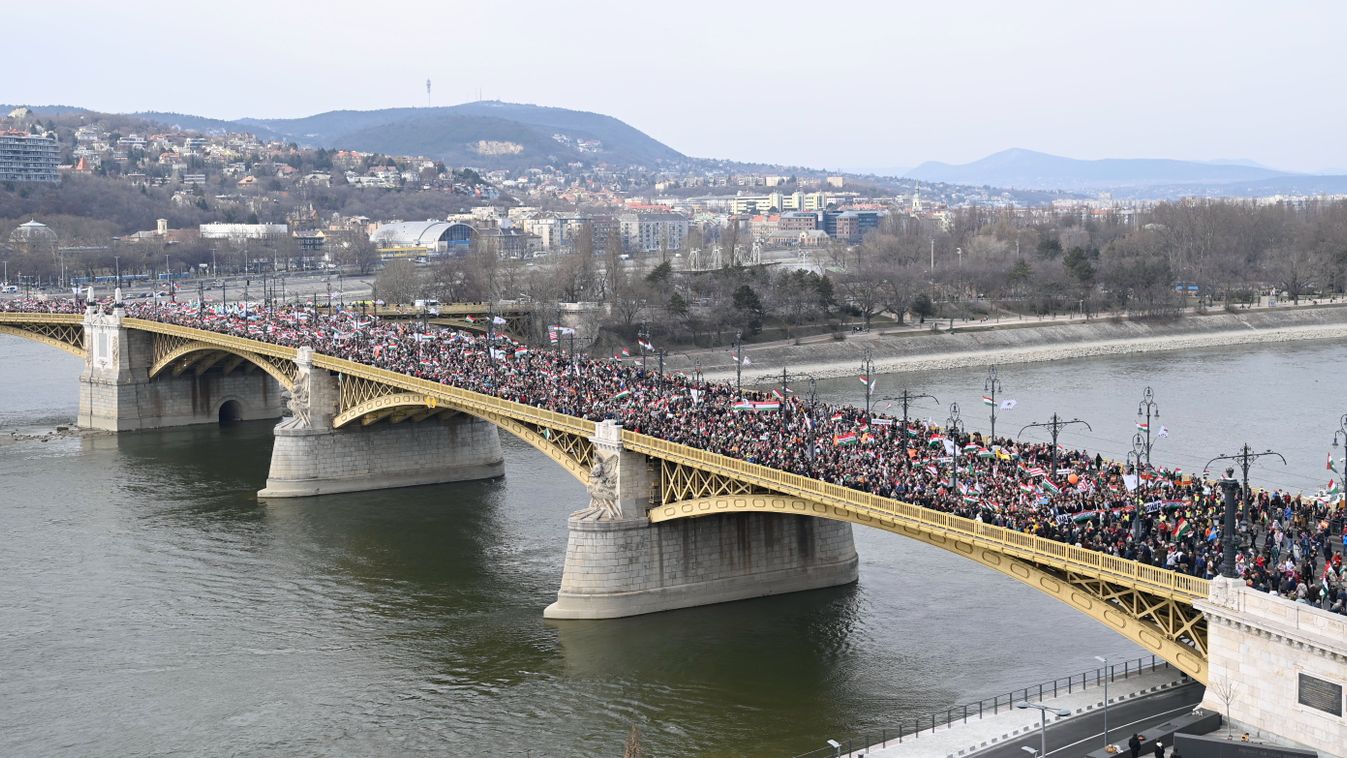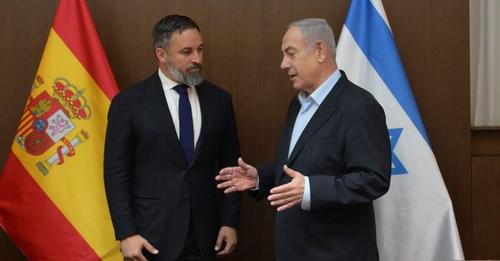Hungary is gearing up for the largest pro-peace march in the nation’s post-communist history on June 1, with over half a million people expected to attend in Budapest. Among the attendees will be Prime Minister Viktor Orbán, who will deliver a speech at the event calling for peace in Europe, a message he has continually promoted since the war broke out in Ukraine.
“This time we are preparing for the biggest peace march ever, we have never received so many messages from Hungarians in Hungary and abroad,” Zoltán Lomnici Jr., spokesman of the Civil Union Forum (CÖF) and the Civil Union Public Benefit Foundation (CÖKA), told Magyar Nemzet.
The constitutional lawyer noted that this year, on June 1, the peace march, which was first launched in 2012 by CÖF-CÖKA and its intellectual defenders, will be organized for the tenth time. The peace marches are the largest civil initiatives following regime change in Hungary in 1989 and have seen the largest crowds gather for any political or social mobilization.
In a country of nearly 9.7 million, if the protest actually manages to attract a crowd of 500,000, it would equal a crowd of 4 million in Germany proportionally speaking.
“The organization of a pre-election peace rally is an excellent opportunity for the courageous civilian supporters of peace to voice their firm commitment to peace, thus legitimizing the line taken by the civilian-national government on the issue of war and potentially contributing to the advance of the pro-peace forces that have long been the hallmark of genuine civil society in the EU,” said Lomnici.
At the last peace march in 2022, nearly half a million people took part, according to CÖF-CÖKA President László Csizmadia. The first peace march was organized in 2012 in support of Viktor Orbán’s government standing up to what he called EU blackmail.
Hungarians overwhelmingly support a ceasefire in the conflict in Ukraine, according to numerous polls. Despite the left’s history of anti-war stances, the left-liberal parties in power in Europe are now the biggest promoters of continued war in Ukraine, while Hungarian Prime Minister Viktor Orbán is now the only leader calling for a ceasefire besides Slovak Prime Minister Robert Fico, who remains in the hospital with severe wounds after an assassin shot him numerous times over his stance on Ukraine.
The peace march in Hungary is expected to be a show of force in support of peace in the country, a point reaffirmed by Lomnici. The constitutional lawyer said that such a mass event demonstrates social power and is undeniable proof of the will of a people, which, in Hungary’s case, is a desire for peace.
According to Lomnici, the importance of the event and the cause it represents — a stand for peace — is supported by the fact that Prime Minister Viktor Orbán will be present and will speak at 3 p.m.
First, this shows that the government considers the cause of peace to be of strategic importance. Second, people can see and hear the prime minister in person, which strengthens trust and a sense of direct political involvement in the cause for peace.
Third, it represents a guarantee that the people who voted for the prime minister know he remains dedicated to pursuing peace in Europe despite enormous pressure, including potential threats on his life. This guarantee means that Hungary will not allow itself to be dragged into a war that is still escalating rapidly right at Hungary’s doorstep, which also affects Hungary’s fellow citizens in Transcarpathia, home to 150,000 ethnic Hungarians, many of whom have already lost their lives at the frontlines in Ukraine.
According to Lomnici, Hungary’s sovereign pro-peace position must be respected by all decision-makers in Europe and in the Western alliance systems.






